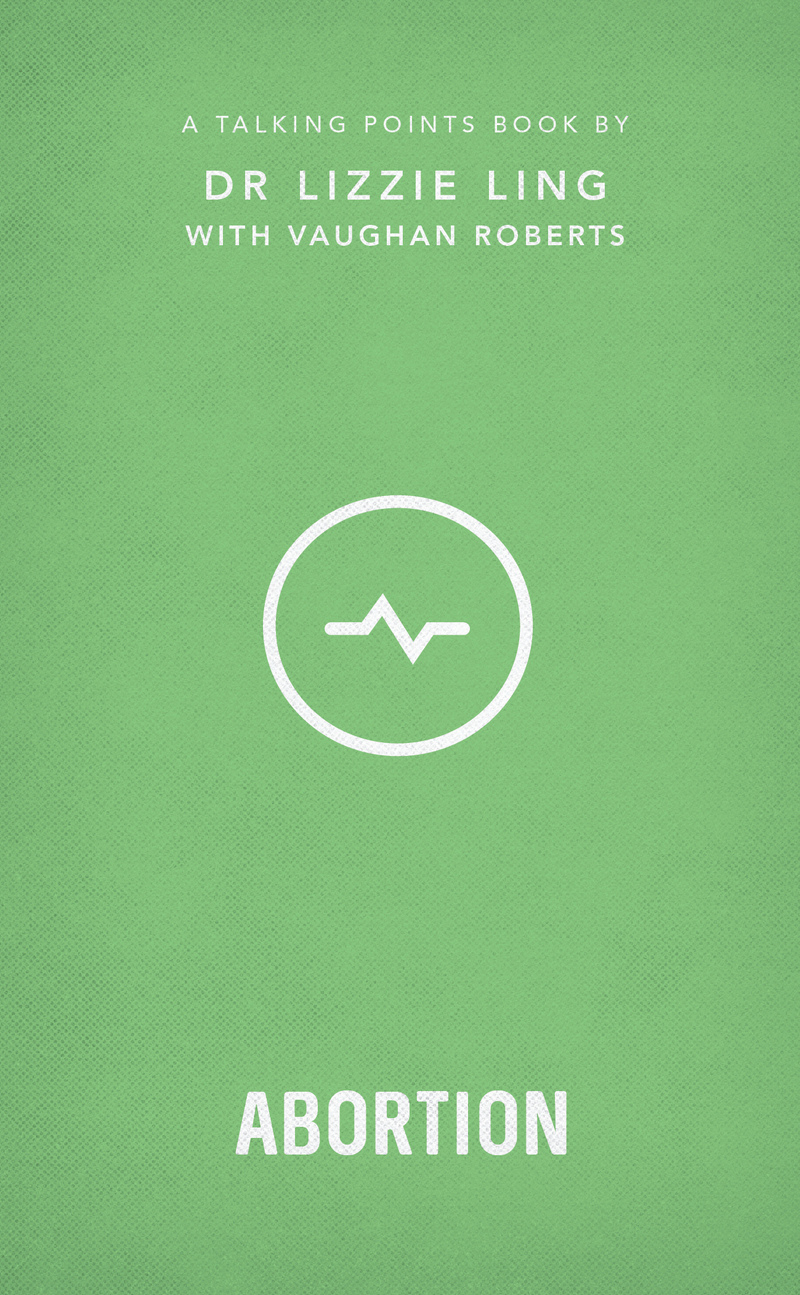Worldwide over 40 million abortions are performed every year, however we rarely talk about abortion in church, even though it’s very likely there are individuals in our churches who have had an abortion, or who have been touched by one. We can also feel fearful about raising the topic with family and friends. Opinions are strongly held, debate is frequently heated and given our social and political climate, it’s becoming increasingly difficult to raise biblical views on abortion. The result is we often remain silent and avoid the topic altogether.
We rarely talk about abortion in church, even though it’s very likely there are individuals in our churches who have had an abortion, or who have been touched by one.
Lizzie Ling and Vaughan Robert’s new book, Abortion, is a helpful resource and excellent introduction to the topic. It’s for anyone who wishes to be informed on this controversial subject from a Christian point of view. The abortion debate is complex and multifaceted, however the authors have written a book that’s easy to read, while not oversimplifying the issues. They offer a gospel and biblical perspective, while referring to the historical, social, and scientific context of abortion, so readers can engage with the issues in an informed and thoughtful manner. A sensitive tone is maintained throughout, and a genuinely compassionate response is given to anyone reading the book, who may be considering an abortion or struggling following one.

Talking Points: Abortion—Christian compassion, convictions and wisdom for today's big issues
Lizzie Ling with Vaughan Roberts
Talking Points: Abortion—Christian compassion, convictions and wisdom for today's big issues
Lizzie Ling with Vaughan Roberts
Lizzie Ling is the Associate Minister for Women at St Ebbe’s Church, in Oxford, UK. She has a wealth of experience to draw on, having worked for many years as a GP. Vaughan Roberts is the Rector of St Ebbe’s and is a well-known author and speaker on a range of topics. The book is part of the Talking Points series of short books published by the Good Book Company, which are designed to inform Christians about challenging topics, so they can engage with others thoughtfully and with confidence.
Critical Issues
The authors begin by asking, ‘Where are we?’ and ‘Who are we?’ These chapters explore critical issues around the pro-life and pro-choice debate, including the language we use and the interplay between women’s rights and the rights of the unborn. Theological truths about being made in the image of God, and the impact this has on our dignity and purpose, are also discussed. The authors explain how in a broken world that has rejected God and his moral framework for our lives, we have come to believe that our bodies are inferior to our minds. This has led to the commonly held view that we have a right to do what we want with our bodies.
The authors show how Scripture affirms that a child in the womb has a God given identity from conception.
The third chapter, ‘When are we human?’ addresses another significant question. The abortion debate has traditionally hinged on when we become humans and whether an embryo/foetus can be considered a person with rights. The authors show how Scripture affirms that a child in the womb has a God given identity from conception—or even before. Significantly the authors highlight how there’s been a shift in emphasis from when life begins, to whether that life is worthy of protection. Referring to the work of bioethicist Dr Megan Best, they describe how ‘personhood’ is no longer automatically attributed to any human being. This has led to a slippery slope where we have to be able to perform particular functions, meet certain criteria or have lived long enough, in order to have the status of a person.
The book has a significant pastoral and practical emphasis, which makes it an excellent resource for pastors and those in Christian care ministry, as well as everyday Christians. Two chapters are devoted to providing helpful guidelines for responding to pastoral situations. The first outlines Scripturally grounded principles and the second looks more specifically at how to answer common questions people might ask, both inside and outside of the church.
Ling and Vaughan ask readers to consider how they could be more involved in the area. Importantly, they outline what churches can be doing to overcome stigma and equip members to engage well with others on this issue. They stress the need for churches to be places where people can safely open up about things they’re struggling with, including unwanted pregnancy or a previous abortion. To this end, there is a helpful discussion guide for those wishing to work through the book in a small group. There’s also list of further reading and resources, however, it’s unfortunate that the websites and agencies are limited to those in the UK and USA.
This is an excellent and well-balanced introduction to the challenging topic of abortion. Pastors and those in care ministry will find this short book particularly helpful but it’s important reading for all Christians and could be read with someone struggling with an unwanted pregnancy. The authors give readers the fundamentals of the abortion debate and provide a clear biblical perspective. The pastoral guidelines are particularly helpful, and the hope of the gospel is kept firmly in view.










